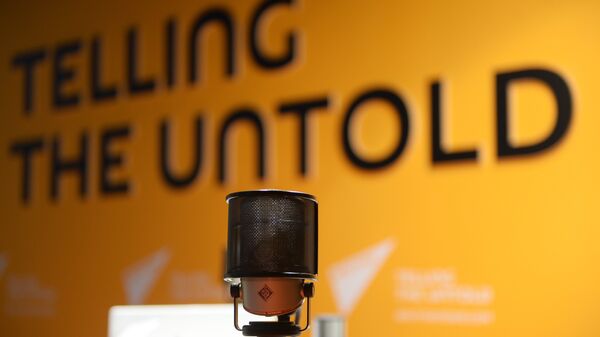"The European Parliament has not yet provided a proper reaction to the situation. The European Parliament lawmakers, who are usually meticulous about the freedom of speech situation in third countries, do not want to see the outrage that takes place on the European Union territory, including Estonia", Kobrinets said.
Moscow hopes that OSCE Representative on Freedom of the Media Harlem Desir will be urging Tallinn to review its policy of discriminating Sputnik Estonia, the diplomat went on to say.
"Russian diplomats have repeatedly raised the Estonian authorities' persecution of journalists at the sessions of the OSCE Permanent Council. The OSCE leadership has proven to be more sensitive to our argumentation than the EU or the CoE. Both [OSCE] Secretary General Thomas Greminger and Representative on Freedom of the Media Harlem Desir have supported Sputnik Estonia"

"We expect that the OSCE's media representative will keep his finger on the pulse and will urge the Estonian authorities, in consultations, to review the discriminating policy", Kobrinets said.
A press conference of Kirill Vyshinsky — the executive director of Rossiya Segodnya International Information Agency, which includes Sputnik Estonia — and Sputnik Estonia Editor-in-Chief Elena Cherysheva has been recently held on the sidelines of the winter session of the Parliamentary Assembly of the Council of Europe (СoE) in Strasbourg.
They have also met with CoE Commissioner for Human Rights Dunja Mijatovic, and she has pledged to sort out the situation, Kobrinets recalled.
Sputnik Estonia staffers were forced to terminate their contracts starting 1 January, after receiving threats of jail terms of up to five years from Estonian police, which cited the 2014 EU sanctions, imposed on Dmitry Kiselev — the head of the Rossiya Segodnya International Information Agency — as the grounds for prosecuting the outlet's employees. However, the outlet itself has not appeared on any sanctions lists.


